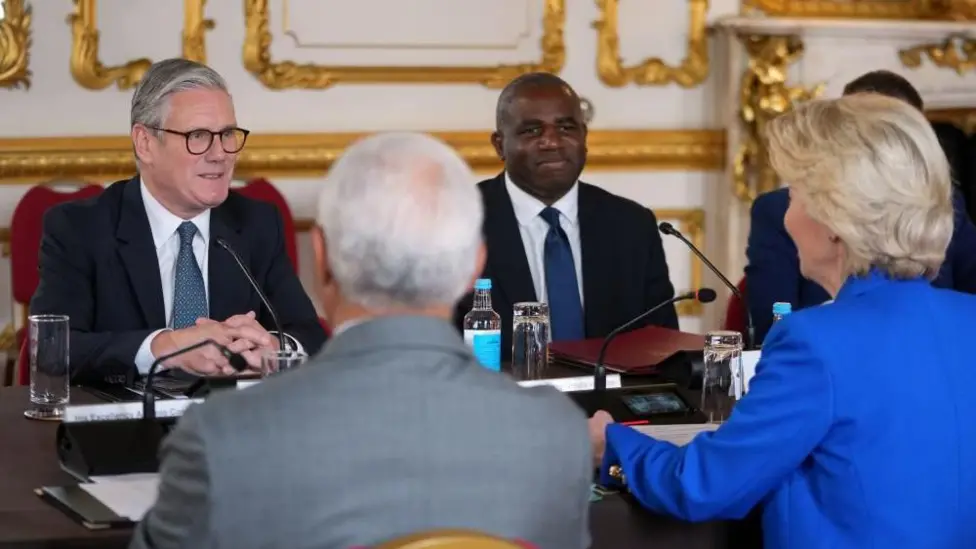The United Kingdom and the State of Israel share a deeply entangled history—one that is rooted in colonial legacies, wartime diplomacy, and a shared commitment to democratic values. Over the decades, the UK-Israel relationship has evolved through phases of tension, pragmatism, and strategic alignment. But recent events in Gaza have tested this long-standing alliance like never before, with Britain joining a growing list of countries reassessing their support amid mounting civilian casualties and humanitarian concerns.
From Security Cooperation to Sanctions
Security and defense cooperation have long been a cornerstone of the UK-Israel alliance. Both nations have shared intelligence on counterterrorism, cybersecurity, and regional threats, particularly from Iran and extremist non-state actors. Israeli defense firms have collaborated with British contractors, and post-Brexit trade ties were strengthened through a 2021 UK-Israel Trade and Partnership Agreement.
However, those strategic ties are now under strain. In a dramatic policy shift, the British government announced a suspension of free trade negotiations with Israel and imposed sanctions targeting violent Israeli settlers in the occupied West Bank. Foreign Secretary David Lammy stated the government could not continue discussions with a partner pursuing “egregious policies” in Gaza and the West Bank.
“The Israeli government has a responsibility to intervene and halt these aggressive actions,” Lammy said. “Their consistent failure to act is putting Palestinian communities and the two-state solution in peril.”

A Turning Point in Diplomatic Alignment
The Conservative Party has historically championed strong ties with Israel, but the Labour-led government under Prime Minister Keir Starmer has adopted a more critical posture. Starmer described the level of suffering among children in Gaza as “utterly intolerable” and reiterated his call for an immediate ceasefire.
On Monday, the UK joined France and others in issuing a rare joint condemnation of Israel’s military actions. The statement marked one of the strongest criticisms by close allies since the war began, threatening “concrete actions” unless Israel halts its offensive and allows greater humanitarian access.
Even the United States, Israel’s most stalwart ally, has voiced concern. While the initial international response to Hamas’ October 7 attack was overwhelmingly supportive of Israel’s right to self-defense, global patience is wearing thin as the civilian death toll in Gaza surpasses 53,000—many of them women and children, according to Gaza’s Health Ministry.
Read More:UK, France, Canada threaten action against Israel, Netanyahu hits back
Public Opinion and Political Reckoning
British public opinion, already divided on Israel-Palestine issues, is increasingly critical of Israel’s handling of the war. Protests have erupted across major UK cities demanding an end to arms sales and stronger diplomatic pressure. NGOs and civil society organizations have ramped up their campaigns, urging the government to hold Israel accountable for what they describe as disproportionate military action.
Though the UK continues to oppose antisemitism and reaffirms Israel’s right to security, the Gaza war has reframed the debate from one of counterterrorism to humanitarian urgency. Starmer’s government has emphasized that criticism of Israeli policy must not be conflated with hostility toward Jewish communities.
European Allies Reconsider Support
The UK is not alone in its strategic recalibration. French President Emmanuel Macron has intensified calls for a ceasefire and greater humanitarian access. Macron has also floated the possibility of recognizing a Palestinian state as early as June and has warned that France could revisit its cooperation agreements with Israel.
Tensions with France escalated further after Macron urged a halt to arms deliveries destined for Gaza, a move that provoked sharp rebukes from Israeli Prime Minister Benjamin Netanyahu. France has even barred Israeli defense companies from participating in a key naval defense exhibition.
The humanitarian toll in Gaza has become a focal point of international concern. A near-total blockade lasting months has pushed the region toward famine. Although Israel has recently allowed aid trucks carrying baby formula and medicine to enter, UN officials describe the volume as a “drop in the ocean.”
UN humanitarian warned that the starvation and displacement in Gaza could spark long-term regional instability and fuel radicalization. “This is no longer just a conflict,” he said. “It’s a crisis of human dignity.”
Britain’s once-solid relationship with Israel is now undergoing a profound transformation. What was previously a dependable alliance built on shared values and strategic interests is now being tested by the humanitarian catastrophe in Gaza and Israel’s controversial policies in the West Bank.
As more traditional allies begin to distance themselves, Israel finds itself increasingly isolated. Whether this diplomatic fallout will lead to meaningful policy change or further entrenchment remains to be seen. What is clear is that the Gaza conflict has redrawn Israel’s global map—turning former allies into vocal critics and forcing a fundamental rethink of long-standing relationships.
New Daily Prime will continue to track this evolving geopolitical shift and its implications for the Middle East and beyond.



